An inappropriate bite is not only an unattractive smile, it is also a threat to the health of a person in general. In some very serious cases, not only the jaw is at risk, but also the digestive and cardiovascular systems. In addition, poor dentures or poorly placed teeth can alter facial features and become a reason for insecurity.
We decided to find out what the consequences of an inappropriate bite are and if you need to see an orthodontist as an adult. The results are really impressive.
How Your Bite Affects Your Oral Health
Facial Asymmetry
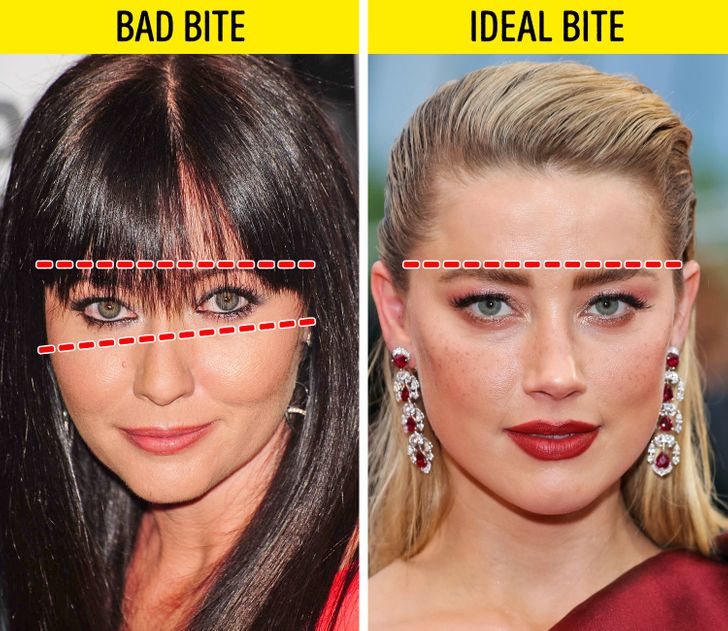
A little bit of asymmetry doesn’t make a face look bad and even makes it a bit unusual in a good way. But if a person has a malocclusion (an inappropriate bite), a very severe asymmetry of the lower or upper part of the face can develop.
For example, if a child loses a baby tooth very early or if an adult does not have all teeth, the mouth may look unusual: for example, one side of the mouth may be lower than the other or the line of the eyes may be tilted.
Some celebrities even have this feature, but only a little. And if the problem of a missing tooth or improper bite is not resolved in time, even the most qualified dentists may not be able to solve the problem of facial asymmetry.
Protruding Upper Teeth Or A Pronounced Chin
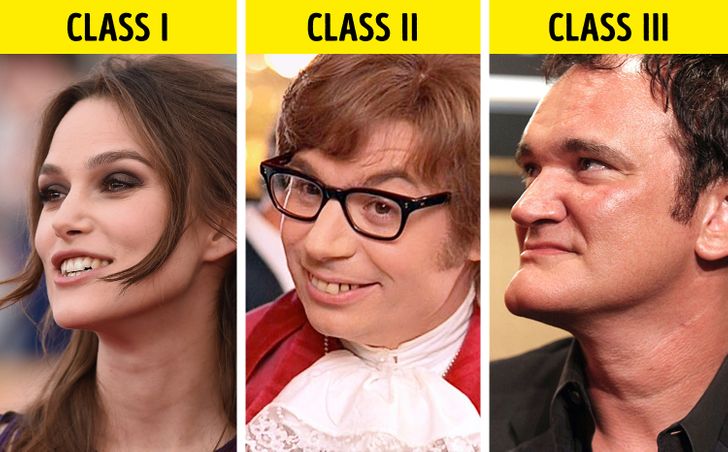
There are 3 types of malocclusion.
Class I: The molars are closed in the usual way, but the other teeth do not have enough space, are not in the same line, or there is some above or below the eruption.
Class II: the first molars of the upper and lower jaws are not aligned with each other and the upper jaw is protruded.
Class III: The molars are also not aligned, but the lower jaw is protruded.
So if a person has a Class II malocclusion, the upper teeth are protruding and a Class III malocclusion means they have a massive protruding chin.
Headache
If the teeth do not close properly, it forces the person to work even harder to chew the food. Sometimes it causes pain in the jaw muscles, which is transmitted to the temples.
Pain can appear not only during eating: if the back teeth do not allow the jaw to move normally, the jaw muscles are tight all the time. This causes unpleasant sensations near the temples. This pain is called a tension headache.
In really rare cases, these headaches can appear if you have faulty dentures, causing the jaw to not close well enough.
Experiment: To see if you have a headache from your teeth, clench your teeth as tightly as you can. If you feel like your headache is getting worse, this could be a sign that you need to see an orthodontist.
Problems With The Face Shape And Premature Aging
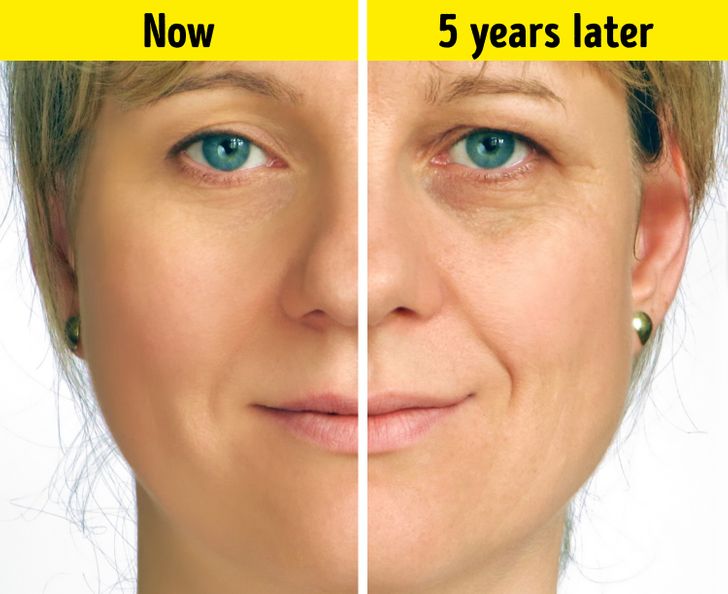
The growth of the skull does not stop in childhood or youth. Some small changes, according to dentists, continue to happen in our later years as well. An improper bite can lead to deformation of the face, cheeks or the corners of the lips, which may be lower than before.
In fact, the presence and absence of wisdom teeth also influence the bite. Many celebrities have their wisdom teeth removed to make their cheekbones more visible. However, according to dentists, the face will not lose weight in most cases.
Changes in the shape of the face can also cause premature wrinkles. And they can be more visible on only one side of the face.
Respiratory And Heart Problems
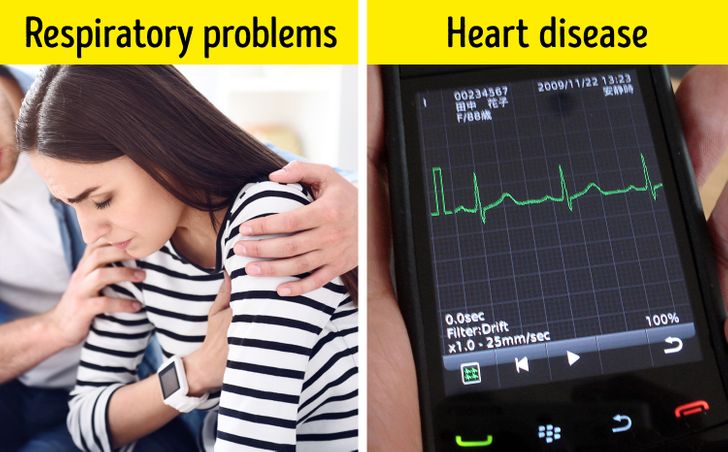
If a person has an innate malocclusion, it can have other negative consequences, such as teeth grinding, muscle spasms, breathing problems during sleep, obstructive lung disease, and even immune system problems.
The researchers also found a link between class I and II malocclusions and myopia. Severe cases of malocclusions can cause heart problems and hypertension.
This has been shown in an experiment in which patients with an improper bite put on special things that allow their teeth to close properly, causing their blood pressure to drop.
Increased Tooth Sensitivity
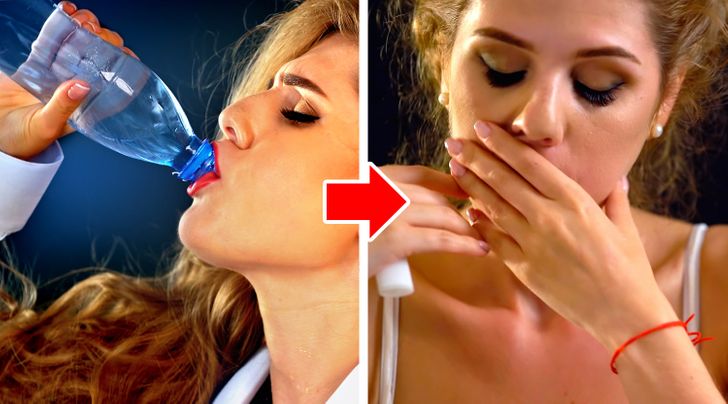
If the jaw does not close well enough in some places or when a person needs to go the extra mile to chew food, this causes the bone around that area to grow and the nearest teeth begin to curve vertically.
As a result, a microscopic disconnect forms near the gums and a cavity appears on the tooth. This phenomenon is called abfraction.
Due to this damage, the dentin (the solid part of the tooth) is easily irritated and the teeth become more sensitive to changes in temperature, bittersweet food, and also physical contact (for example, with a toothbrush).
What dental problems have you faced and do you have a beautiful smile? Tell us in the comments section!
Preview photo credit MARCOCCHI GIULIO/SIPA / East News, VALERY HACHE/AFP / East News


